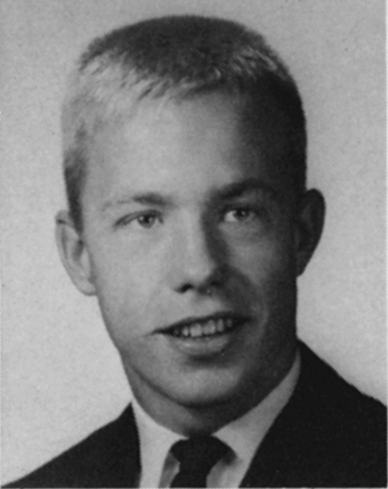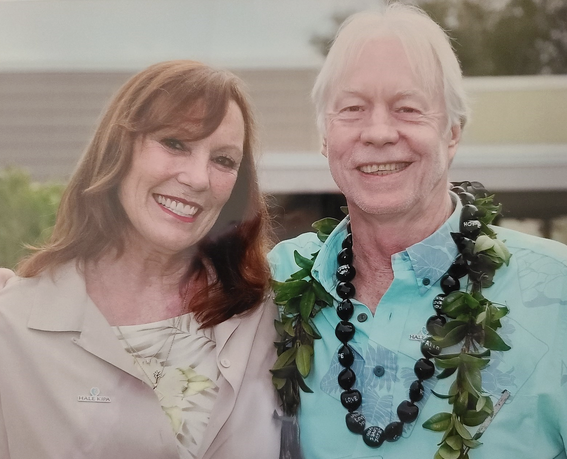
A Hui Hou
The thing about Punky...
He was a Midwesterner through and through.
There was a humble purity in his values—but more than that, he lived them. That was all he ever was, and all he ever believed really mattered.
Throughout his life, he had an uncanny ability to graciously navigate different cultures and other's life circumstance. He met people where they were at and honored their worth and dignity. His belief in the actualization of human potential was, for him, imperative.
A direct descendant of immigrant Norwegian farmers, Punky was born and raised in Grand Forks, North Dakota. He grew up in what were considered low-income neighborhoods. Both of his parents were aspiring professional educators—Navy veterans of WWII—deeply involved in a progressive culture of educational change in the United States, especially in the Midwest.
The streets of Grand Forks gave young Punky more than survival... they offered lessons in resilience, adaptability, and the harsh realities of inequality. He gained insight into suffering, privilege, and injustice. And through it all, his loyalty to his neighborhood and childhood friends never wavered.
His heart extended far beyond his own life. He volunteered at the Mission in Grand Forks...cooking, feeding, and befriending the homeless. He also took in stray dogs, nurturing them with the help of his mother. They loved them like family.
Punky was also exceptionally educated. A commanding yet humble presence in the Boardroom, he moved seamlessly between the streets and the highest levels of leadership. And he never abandoned his commitment to either realm. Punky was a true anchor of goodness. He believed everyone mattered, everyone deserved an opportunity. And in the Boardroom, he eloquently and passionately advocated for the dignity, worth, and potential of every single human being.
After college, he joined VISTA (Volunteers in Service to America, often called Domestic Peace Corps). He was assigned to a dying old mill town in Central Massachusetts, Fitchburg, as a Youth Street Outreach Worker, and was himself placed in a low-income foster home for living arrangements. He was grateful and appreciative about this arrangement. He taught the neighborhood kids sports, loved teaching and being a role model.
Over time, he became frustrated with what he considered minimal impact given his observation of great need, and asked Vista to release him so he could start an agency that could help a greater number of kids in a shorter period of time.
At age 22 years, in 1970, he and another Vista Volunteer then founded the LUK Crisis Center in Fitchburg, a nonprofit social service agency for youth. Though he always gave credit to many others (community members, collaborators, local churches, volunteers, employees), Punky was the heart and soul of that organization, and its first CEO, until 1998.
Punky embodied what it meant to be a community organizer. There were so many people in the community who took ownership of starting LUK Crisis Center, believing they were essential to the agency’s founding—and they most certainly were.
It was 1970—a time of great upheaval in the United States. Vietnam, protests, drugs, abortion... all significant realities fueling profound civil unrest. In response, Punky created an anonymous Hotline at LUK that quickly became a lifeline for people in crisis... calls from those facing despair, suicide attempts, drug overdoses, fear and overwhelming need. It was this experience that defined for Punky the importance of unmet need in program development. It became a guiding principle for him. While many agencies could provide similar services in a community, he remained devoted to identifying and responding to what he believed to be unmet needs in systems of care or community services and resources.
To Punky, leadership was never about being the central voice in the room. It was about actualizing the potential of every person in the room— thus actualizing the level of collective intelligence in the room. It was only there, in that shared space, that true leadership could be found. To him, real leadership meant checking your ego at the door. Anyone who knew him would agree—this wasn’t just a philosophy, it was what he believed to his core.
In 1998, Punky said goodbye to Fitchburg and relocated to Oahu, Hawaii, with his wife, Cris. Cris and Punky worked together at LUK, Inc. for 26 years. She was a Clinician and Program Developer. He accepted the CEO position at Hale Kipa, thinking it would be a slow transition into retirement for them. They had vacationed in Hawaii annually since 1985 and felt deeply connected to the spirituality of the islands.
But Punky’s retirement would have to wait. Upon his arrival at Hale Kipa, he was immediately immersed in the challenges of the Felix Consent Decree—a landmark moment for social services in Hawaii. The work was critical, relentless, and demanding. For nearly 23 years, he poured his heart and soul into developing much-needed standards of care, long established on the mainland but not yet fully implemented in Hawaii. He rolled up his sleeves, as always.
And finally, after decades of service, Punky finally retired. Soon after, he was taken from us.
Hawaii was gifted an angel during a time of great need—for youth, for families, for communities. Punky gave all he had. That’s simply who he was.
We lost a great man. And to the many who knew him, loved him, and whose lives were touched by him—he will be deeply missed.
Punky leaves behind his wife and life partner of 52 years, Cris (Cathy) Pletan-Cross, his fifth canine rescue and partner in play, Pearl Maile; his sister Judy Thompson and her husband Gene, of Nebraska; and Judy’s children—Monica, Becky, and James Janssen.

These classmate obituary pages are our attempt to honor and remember classmates who have passed away. We have attempted to find and share a public obituary and have added some photos and classmate comments. In some cases we have not been able to find an obituary. If you know of an obituary where one is missing, please let us know. If you have a remembrance you think is important to share, please let us know. Comments can be submitted through the Contact Us form on this web site.